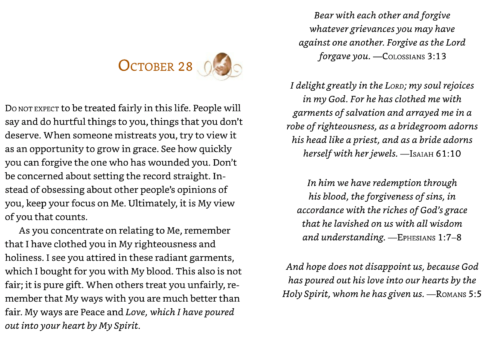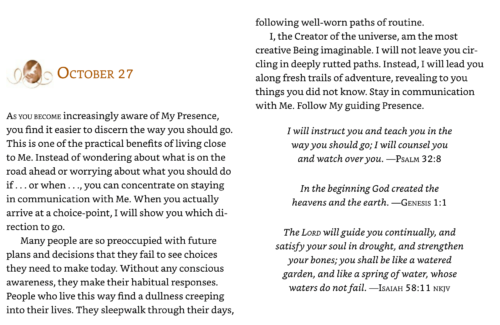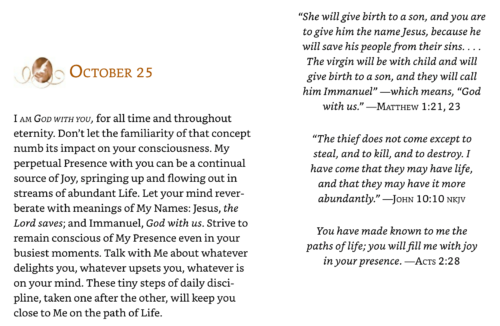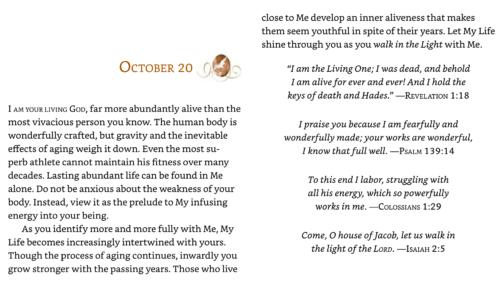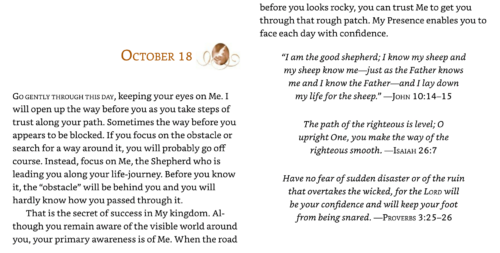Everybody is God’s somebody. —Bishop Michael Curry, Love Is the Way
Episcopal Bishop Michael Curry, with whom Fr. Richard has worked on several occasions, shares how knowing we are “God’s somebody” allows us to love ourselves and others.
I’ve come to see that the call of God, the love that bids us welcome, is always a call to become the true you. . . . Not an imitation of someone else. The true you: someone made in the image of God, deserving of and receiving love.
There is a Jewish proverb, “Before every person there marches an angel proclaiming, ‘Behold, the image of God.’” Unselfish, sacrificial living isn’t about ignoring or denying or destroying yourself. It’s about discovering your true self—the self that looks like God—and living life from that grounding. Many people are familiar with a part of Jesus’s summary of the law of Moses: You shall love your neighbor as you love yourself. Yourself. Loving the self is a required balance. If we fail in that, we fail our neighbor, too. To love your neighbor is to relate to them as someone made in the image of the God. And it is to relate to yourself as someone made in the image of the God. It’s God, up, down, and all around, and God is love.
The ability to love yourself is intimately related to your capacity to love others. The challenge is creating a life that allows you to fulfill both needs. I often speak of the loving, liberating, life-giving God. Sharing godly love liberates the true self, so that we can more fully live and discover that place where “your deep gladness and the world’s great hunger meet,” as Frederick Buechner put it in Wishful Thinking: A Theological ABC.
I don’t know exactly why it works that way, other than to channel my grandma: “We’ve got a good God and a good Gospel.” . . .
All I know is that I have seen the wonderful personal transformations that happen when people start navigating with God’s GPS. I’ve experienced it myself. . . .
My job is to plant seeds of love, and to keep on planting, even—or especially—when bad weather comes. It’s folly to think I can know the grand plan, how my small action fits into the larger whole. All I can do is check myself, again and again: Do my actions look like love?
If they are truly loving, then they are part of the grand movement of love in the world, which is the movement of God in the world. . . .
It is impossible to know, in the moment, how a small act of goodness will reverberate through time. The notion is empowering, and it is frightening—because it means that we’re all capable of changing the world, and responsible for finding those opportunities to protect, feed, grow, and guide love.
____________________________________________
Sarah Young………
LINGER IN MY PRESENCE A WHILE. Rein in your impulses to plunge into the day’s activities. Beginning your day alone with Me is essential preparation for success. A great athlete takes time to prepare himself mentally for the feat ahead of him before he moves a muscle. Similarly, your time of being still in My Presence equips you for the day ahead of you. Only I know what will happen to you this day. I have arranged the events you will encounter as you go along your way. If you are not adequately equipped for the journey, you will grow weary and lose heart. Relax with Me while I ready you for action. ZECHARIAH 2:13; Be still before the LORD, all mankind, because he has roused himself from his holy dwelling.”
EPHESIANS 2:10; For we are God’s handiwork, created in Christ Jesus to do good works, which God prepared in advance for us to do.
HEBREWS 12:3; For consider him that endured such contradiction of sinners against himself, lest ye be wearied and faint in your minds.
Young, Sarah. Jesus Calling Morning and Evening Devotional (Jesus Calling®) (p. 624). Thomas Nelson. Kindle Edition.
